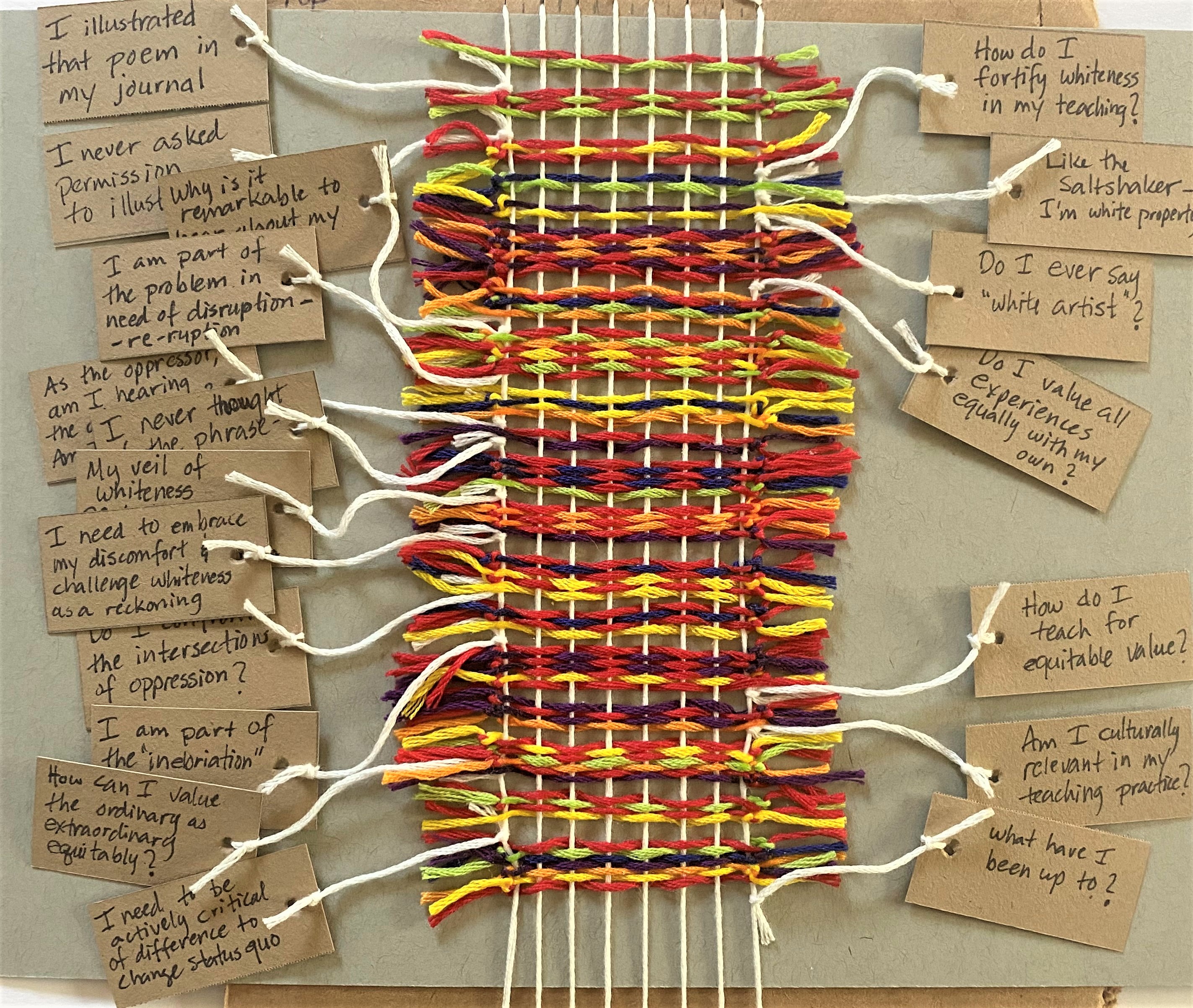A WHITE PALETTE GATHERING
DISCUSSING WHITENESS IN ONE ACT
DOI:
https://doi.org/10.18432/ari29555Keywords:
storytelling, Critical Race Theory, whiteness, arts-based research, fiction as researchAbstract
Storytelling, a tenet of Critical Race Theory, offers a distinct approach for researchers engaging in narrative inquiry. This article models a fiction as research approach for creating a literature synthesis as a pedagogical strategy for teacher educators and pre-service teachers. The white palette refers to a painting palette, a blank slate or canvas, often considered neutral ground. Whiteness, however, is not neutral and this one-act conversation centers on examining whiteness as it impacts my role as a white teacher educator. The production, players, and script developed out of salient literature inclusive of Critical Race Theory, Art Education, and Critical Whiteness Studies. I am both author and a participant in this story. In this capacity, I disclose the impacts of the literature on my white teacher educator identity and reveal how I created arts-based data artifacts to evidence the overall story.
Downloads
Published
How to Cite
Issue
Section
License
Copyright (c) 2021 Karen McGarry

This work is licensed under a Creative Commons Attribution-NonCommercial-NoDerivatives 4.0 International License.
Authors who publish with Art/Research International agree to the following terms:
a. Authors retain copyright and grant the journal right of first publication and the right to sublicense the Contribution, in the form in which it is published by the journal, to others under the terms and conditions of the of the Creative Commons Attribution-NonCommercial-NoDerivs (CC BY-NC-ND) that allows others to download the work and share the work with others with an acknowledgement of the work's authorship and initial publication in this journal, but they cannot change the work in any way or use any part of the work commercially.
b. Authors are able to enter into separate, additional contractual arrangements for the non-exclusive public distribution and display of the journal's published version of the work (e.g., post it to an institutional repository or publish it in a book), with an acknowledgement of its initial publication in this journal.
c. Authors are permitted and encouraged to post their work online (e.g., in institutional repositories or on their website) prior to and during the submission process, as it can lead to productive exchanges, as well as earlier and greater citation of published work (See The Effect of Open Access).
d. Authors wishing to include items (such as images or other media, or any creative works of others whether previously published or not) must contact the original copyright holder to obtain explicit permission to publish these items in Art/Research International. Writing permission should include: the title(s) of any copyrighted work, original place of publication if applicable, and an acknowledgement of having read Art/Research International's copyright notice. Authors are responsible for obtaining this permission and keeping it in their own records for later verification.



